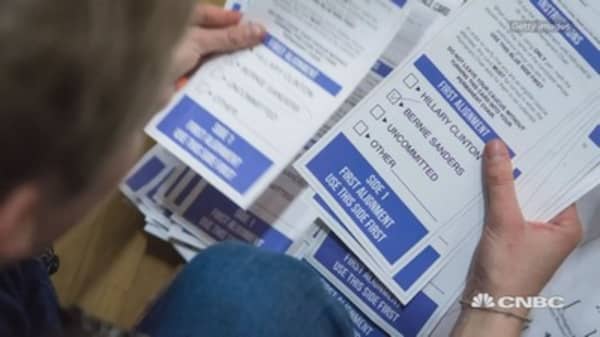If Super Tuesday polls are right, there could be two formidable front-runners in the race for the White House. There also could be an uptick in the stock market.
Historical data suggest that markets tend to rally in the week following a Super Tuesday in which a clear favorite is chosen by the political parties, according to data from analytics firm Kensho.
Look at 1996 for example. After dropping 2.9 percent in the week leading up to Super Tuesday, the S&P 500 turned around after then-favored candidate Bob Dole swept the contests. Investors celebrated by pushing stocks up 2.3 percent in the next week.
Super Tuesday brings out the true herd mentality of the investor base — skittishness when uncertainty lies ahead, and overconfident jumping on the bandwagon when the coast is clear.
This year, the big primary day is Tuesday. A dozen states are holding presidential primaries or caucuses, assigning a fifth of all party delegates, likely offering some clarity on a presidential race that's seen its fair share of red faces, upsets and collapses.









